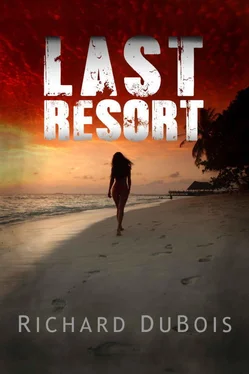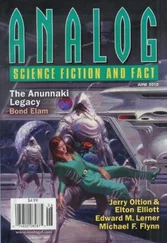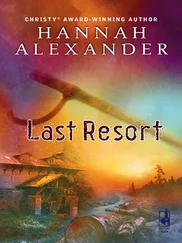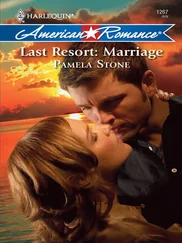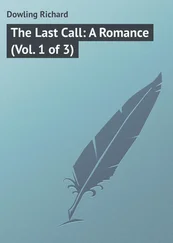To think I will never see my mother again, hear my father’s voice, or feel the security of their presence, causes my lungs to tighten as if a python enfolds me in a crushing embrace. Two nights ago, while I argued with Gwen on the beach—focused only on my petty emotional suffering—everyone I knew and loved—mother, father, and friends—died, incinerated in a flash. What if they did not immediately die instantly, cremated before they even knew what was happening? What if they are still alive, blistered and poisoned with radiation, wracked with pain so agonizing that death would be a welcome relief? Are they thinking of me, wondering if I am all right?
I feel a soft hand on my shoulder and do not need to turn to know it is Gwen.
It does not surprise me that she sought me out. Our marriage might be over, our love battered beyond repair, but she shares a history with me that no one else on the island can match. Any anger I felt towards Gwen disappears.
“Is it true?” Gwen asks. “Is everyone really dead?”
My tone is flat, shell-shocked. “I think so. I want to believe that it’s not true. But then I think about the man on the sailboat. I think about what he looked like—what the radiation did to him. Something has happened in the world, something awful.”
Gwen kneels before me, her eyes haggard and imploring. “It can’t be, Phillip. It just can’t be. If my sister died, if my mother died, I would know. I would feel something. They can’t be dead because I don’t feel anything.”
I know what she wants from me. Gwen is powerless to change things if everyone we know is dead. She cannot prevent what has already happened. But if she can convince me that possibly, just possibly, everyone back home is alive and that maybe things are not as dire for all of humanity as the evidence currently before us leads us to conclude, then she will be justified in clinging to unrealistic hopes.
As she desperately tries to construct a different reality than the one we are living, a pink flush tinges her cheeks and her hands flutter like frightened birds. “I feel the sun on my face. I feel the wind off the ocean. I even feel hungry, but the one thing I do not feel is that my family is dead.”
She sits beside me and begins to weep. I pat her back. The crane finishes its meal and flies away.
The last trace of sunlight slips from view. I stand alone before the sliding screen door of my bungalow. Gwen went her separate way after we left the lagoon. I invited her to accompany me; she politely refused. Perhaps, any remaining link to each other vanished when the world we once shared incinerated. Now, I am simply a man, and she a woman, with nothing to tie us to one another. There is no communal property to divvy up. The very concepts of marriage or divorce become pointless.
I rub the grainy stubble on my jaw and prepare for another long night in an empty room. The candle provided to me remains unlit; it does not seem wise to let it burn for hours since it may well be the last candle I will have. Ghosts and memories fill the room. I recall the day I walked home from elementary school, plucked roses from our neighbor’s yard, and gave the bouquet to my mother. A song was playing on the radio; she sang the words to me. I fooled around and fell in love. I blushed as red as the roses. One winter brought an especially heavy snowfall. Perhaps it only seemed like a heavy snowfall because I was just knee high at the time. In any case, I tromped into the snow and my father chased after me, grunting and growling, pretending to be the abominable snowman. When he caught me and scooped me into his arms to carry me back to his imaginary lair I squealed with glee. I think of my friends, the handful of people with whom I could laugh and confide in. They were the people I turned to when I realized my wife was cheating on me, and not once during that horrible time did they make me feel embarrassed or ashamed.
It is hard to fathom that I will never see them again. A strong urge pulls at me—to ignore the facts as Gwen begged me to do, to cling to the hope that none of the people I love back home were harmed and that soon a plane will arrive to rescue us. Having held Dawson Hartford as he died in my arms, and having heard the ominous silence on the airwaves via the ham radio—airwaves that should have teemed with chattering voices but instead yielded only one, and that one was the last transmission of a poisoned, dying man—it is impossible for me to carry much hope. Still, the heart wants what it wants regardless of the facts.
Two figures wander past my room towards the beach. Squinting against the dying light, I realize it is Pamela and Bill, leaning close to each other, like inseparable young lovers. I leave the bungalow to join them, if only to get a moments respite from the painful memories swirling around my head.
As I approach Pamela and Bill, I realize this is not a romantic stroll as I first assumed. No, Bill is practically staggering and leans on Pamela for support. Rushing to his side, I take his other arm to steady him.
“Oh, thank you, Phillip,” Pamela speaks my name like the conclusion of a prayer. “Bill isn’t well. I thought a cool breeze off the ocean would help him.”
“Bill, what’s wrong? Is it something you ate?” I ask.
Clammy perspiration coats his face. His blue eyes are glassy and vacant, but he focuses on me with a weak smile. “Ah, Phillip, that’s a good lad. Pamela seems to have taken the notion that she is some kind of super woman, leaping from building to building, slinging frail old men over her shoulders with ease. I will be all right. I’m just a little peaked. Look, Pamela was right about the sea air. I feel better already.”
With what seems to be considerable effort, he nudges us back and stands on his own feet.
Pamela clasps her slender fingers to her lips. Worry pinches her delicate, patrician features. Nervously, she glances from me to her ailing husband.
“My little girl, my Angela, is gone,” he laments, swaying like a tall oak in a gale. “She was studying to be a doctor… make the world a better place. Gone. All gone.”
He tries to step forward but his knees buckle. Pamela and I rush to grab him.
“Water. Let’s get him fresh water from the restaurant,” I urge.
We half drag him along the beach to the restaurant. No one is there. It is completely dark, but through the swinging kitchen doors, I see the glow of a torch moving around and hear the clatter of pots and pans.
“Hey, can you bring us some water?” I call to whoever is in the kitchen. “We’ve got a sick man here.”
We rest Bill on a chair. Pamela clasps his hand in both of her own, and he looks up at her with a hazy stare, as though he is descending into a dream. Several buttons on his shirt are undone, revealing the sun burnt skin of his chest and white chest chair. His breathing is shallow. Where the hell is someone with fresh water?
“I’ll be right back,” I head to the kitchen. The doors swing open. The kitchen is large, with a center island covered in stainless steel. Pots and pans of every possible shape suspend from an oval ring over the center island. The glow of the torch comes from around the corner.
“Hey, we need water,” I call. No answer.
Rounding the corner, I see two island women I recognize from amongst the staff stuffing supplies into sacks. They freeze when they see me. On my first night at the resort, they waited on my table, joking amiably with all the guests, but now they regard me with undisguised contempt.
“Stop! Those are our supplies. You can’t take them,” I try to wrest one of the sacks from the women. Slapping me about the face and neck, cursing furiously, they hold me off. Owen appears from one of the pantries with an arm crammed with food. He drops the food, reaches into a drawer, and pulls forth a carving knife. Hulking over me in the dancing torch light, his face gleams like black granite.
Читать дальше
